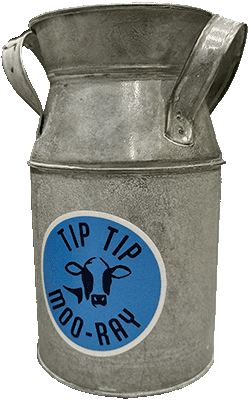Photo: Koonac Goat Farm. Left: Nora, half Saanen and half British-Alpine. Right: Kangaroo
While raw cow milk is sold as a cosmetic, with “bath milk” labeling, goat milk is regulated differently. raw goat milk is still subject to other food safety regulations and guidelines to ensure its safe production and consumption, goat milk is exempt from pasteurization in Australia.
Food Act 2008 on raw goat milk
FSC standard 4.2.4 clause 15: express provision for goat’s milk
Clause 15 of FSC standard 4.2.4 does not apply to goat’s milk.
FSC standard 4.2.4: Clause 15
15. Processing of milk and dairy products
(1) Milk must be pasteurised by
(a) heating to a temperature of no less than 72°C and retaining at such temperature for no less than 15 seconds; or
b) heating, using any other time and temperature combination of equivalent or greater lethal effect on any pathogenic micro-organisms in the milk; or
(c) using any other process that provides an equivalent or greater lethal effect on any pathogenic micro-organisms; unless an applicable law of a State or Territory otherwise expressly provides.
Raw cow milk is bath milk in Australia
In Australia, bath milk is raw cow milk sold as a cosmetic. The law that allows raw cow milk to be sold as bath milk for cosmetic purposes is the Australia New Zealand Food Standards Code (Standard 1.6.2)
However, the specific exemption for “bath milk” is actually provided by State and Territory legislation, which varies across Australia. For example:
- In New South Wales, the exemption is provided by the Food Act 2003 (NSW).
- In Victoria, the exemption is provided by the Food Act 1984 (Vic).
These laws allow raw cow milk to be sold for non-food purposes, such as cosmetic use, as long as it is labeled as “not for human consumption” and meets specific safety standards.
If you’re looking for raw milk laws in the USA, check the raw milk law map.




